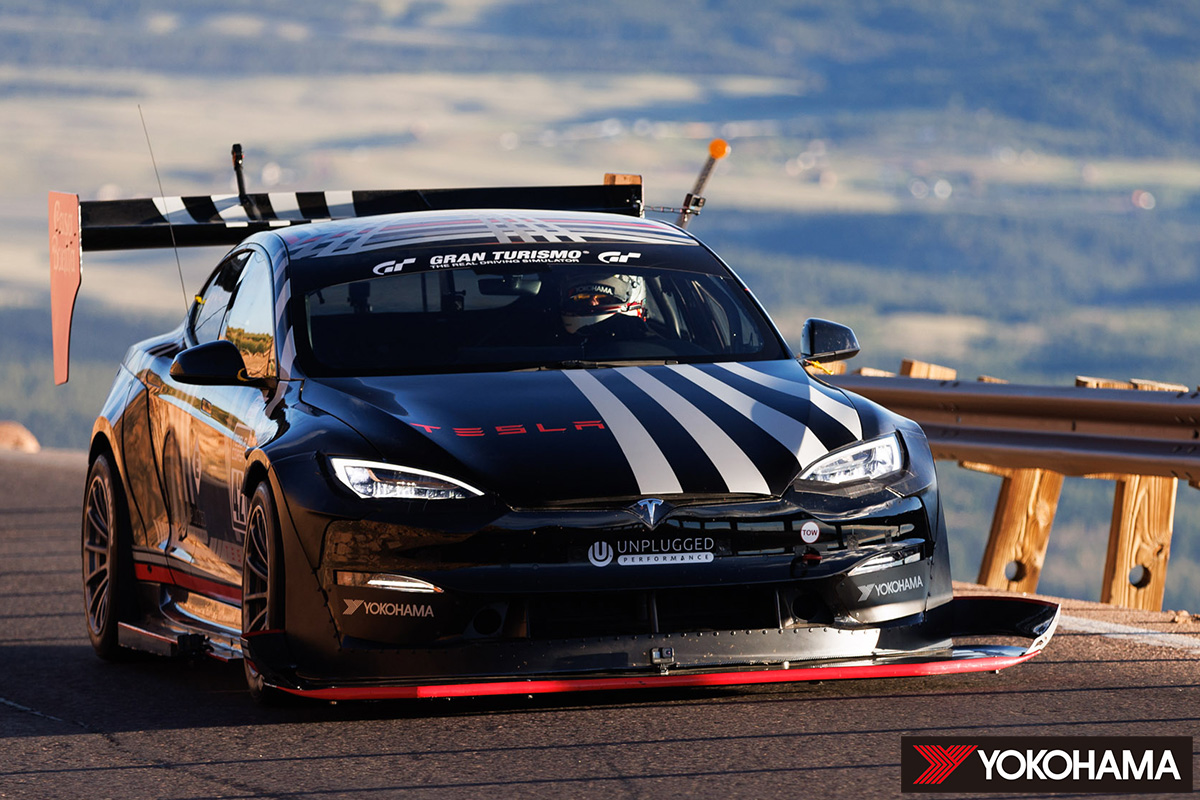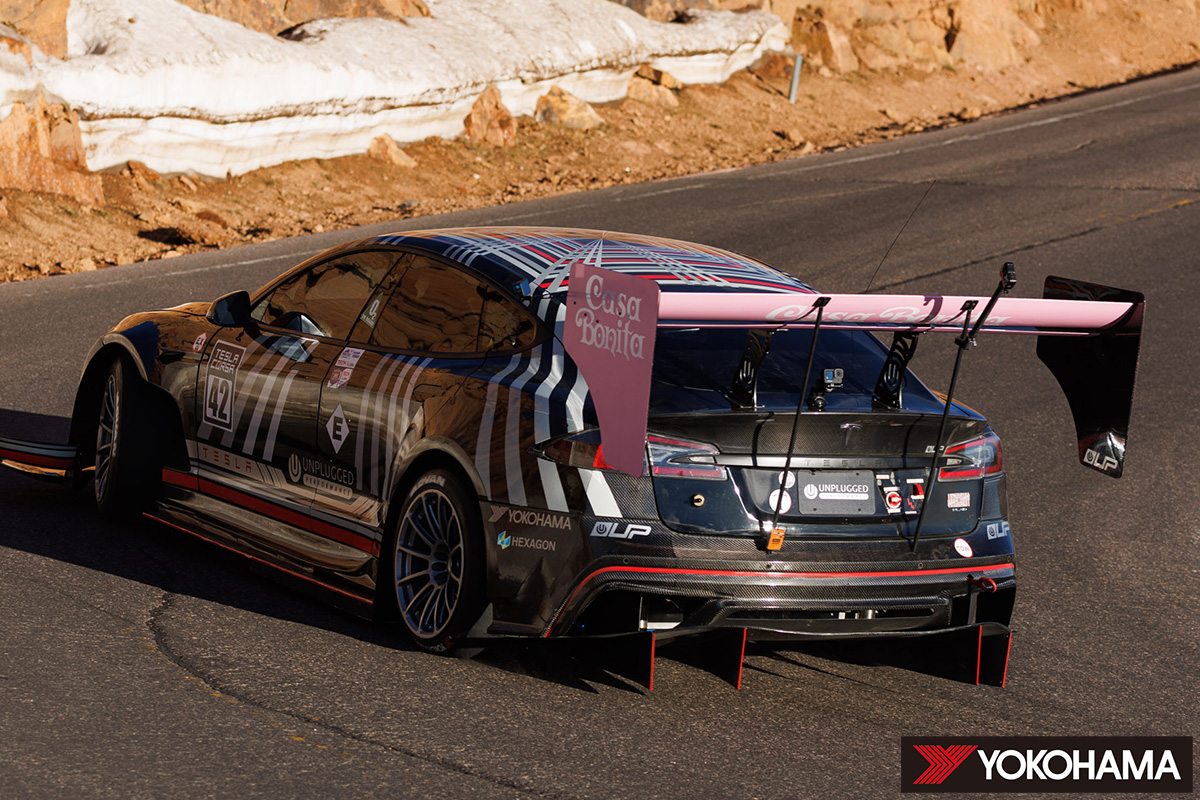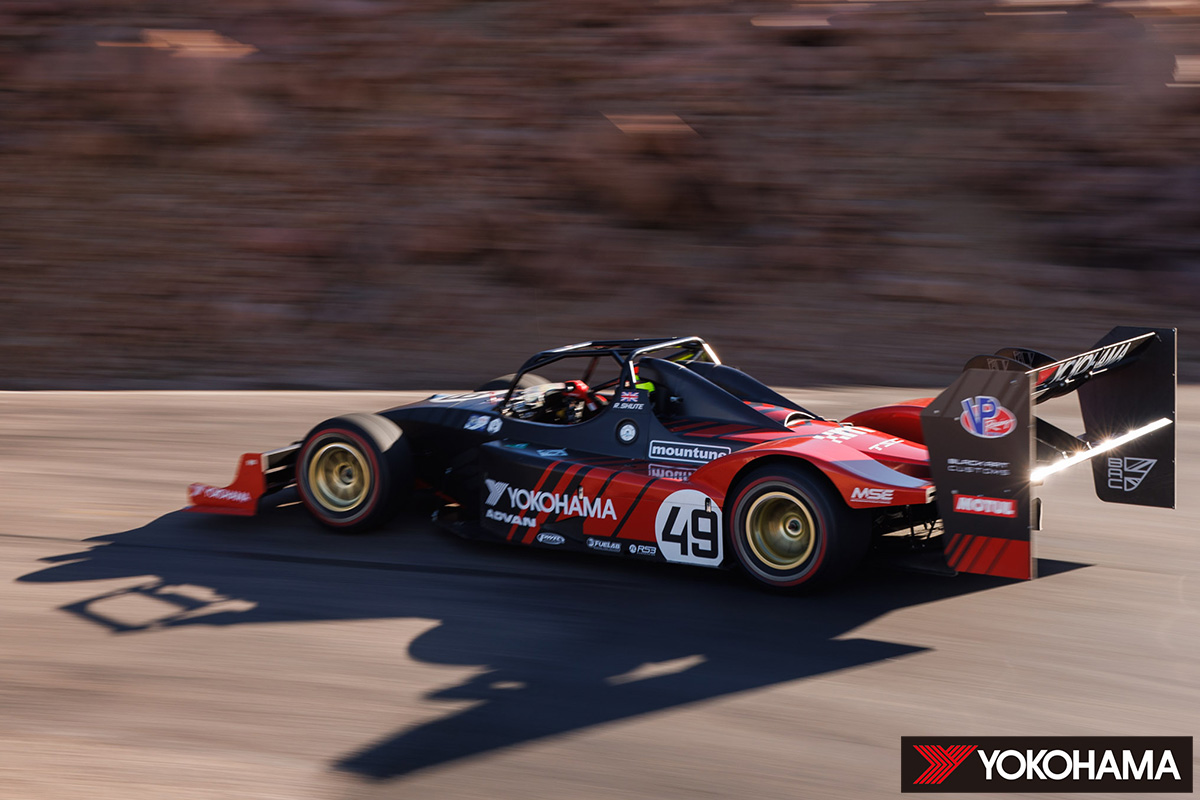- HOME
- Motorsports
- Motorsports
- Pikes Peak International Hill Climb
ADVAN CHALLENGE – Pikes Peak International Hill Climb
There is a mountain known as Pikes Peak in Colorado, USA. The road to the summit is normally used as a tourist route, but once a year, it transforms into a competitive scene. This transformation is for the Pikes Peak International Hill Climb (PPIHC), the world’s largest and most intense hill climb trial. It was actually first held in 1916 and is a historical motorsports race as popular as the Indy 500 in the US.
The secret to its popularity is an elegantly simple challenge: how fast can you climb the 20 km pass to the finish (with an elevation of 2,800 to 4301 meters high)? In the past, parts of the road were unpaved, but construction progressed, and today, the entire route is paved.
YOKOHAMA has previously supplied tires for cars competing in the PPIHC, but it attracted even more attention by competing with an electric car in 2009. In addition to the performance and excellent responsiveness of motor-power, electric vehicles do not lose power like internal combustion engines do when the oxygen density drops due to high altitude. This was also the competition to prove the potential of electric vehicles.
In 2011, YOKOHAMA entered this same machine into the competition with eco-tires (prototype), breaking the record for fastest time by an electric vehicle. And in 2012, YOKOHAMA set another new record using commercially available fuel-efficient tires. In other words, the balance of grip and rolling resistance was demonstrated through motorsports.
Later, in 2022, the ADVAN A052 was first launched as part of YOKOHAMA’s technological development to reduce environmental burden. This tire used sustainable materials from continuing research and development (a shift from using petroleum-derived butadiene rubber to biomass-derived butadiene rubber for sidewall rubber), and YOKOHAMA further developed this tire to offer two types of sustainable racing tires in 2023.
Biomass-derived tire (ADVAN A005: Slick)
The first was a biomass-derived tire (ADVAN A005: Slick), which was supported by the #42 2021 TESLA MODEL S PLAID (driven by Randy Pobst) in the EXHIBITION division.
There are four major features to this tire:
– Replaced by biomass-derived butadiene rubber for the entire sidewall
– Adoption of carcass with improved ratio of renewable materials
– Improved ratio of renewable materials through adoption of mass-balanced SBR CAPs
– Switch to renewable energy during production
33% sustainable materials (ADVAN A005: Slick)
Another tire, made with 33% sustainable materials (ADVAN A005: Slick) and was installed on the #49 2018 Wolf GB08 TSC-LT (driven by Robin Shute) in the UNLIMITED division, the top class in the PPIHC. This tire has the same specs as the tires supplied to Super Formula starting in the 2023 season.
There are six major features of this tire:
– Improved ratio of natural rubber
– Use of a variety of naturally-derived compounding agents, including oil generated from oil palm seeds and orange peel
– Using of recycled iron
– Using of rubber recycled from waste tires
– Adoption of mass-balanced composite rubber
– Switch to renewable energy during production
The PPIHC course is a harsh and challenging one, with over 150 corners, an average gradient of 7%, a max gradient of 10%, and no escape zones (and no guard rail in some places). In addition to the car’s performance, there are great requirements on tire performance, as well. Robin Shute has particularly high expectations for a second consecutive title after winning the overall 2022 PPIHC with this car, and it is hoped that the performance of the tires made with 33% sustainable materials will contribute to this second win.
The PPIHC competition featuring these two sustainable racing tires is on June 25. The ADVAN CHALLENGE, which challenges the possibilities of the team and new tires, will craft a vision of the future of high-performance, high-quality tires. Come and support YOKOHAMA!





